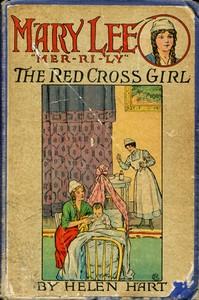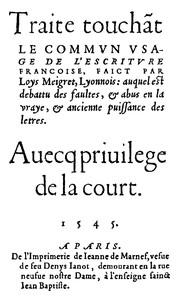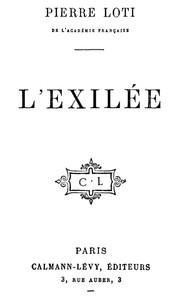Read this ebook for free! No credit card needed, absolutely nothing to pay.
Words: 37266 in 15 pages
This is an ebook sharing website. You can read the uploaded ebooks for free here. No credit cards needed, nothing to pay. If you want to own a digital copy of the ebook, or want to read offline with your favorite ebook-reader, then you can choose to buy and download the ebook.


: Mary Lee the Red Cross Girl by Hart Helen Carsey Alice Illustrator - Friendship Juvenile fiction; Red Cross and Red Crescent Juvenile fiction; World War 1914-1918 Juvenile fiction; Farm life Juvenile fiction; Optimism Juvenile fiction
The hottest day of all days in the hottest June of all Junes was beginning to abate its burning, and the inhabitants of close-packed cities and their perspiring congregations cherished the hope that before long some semblance of briskness might return into the ardent streets. Providence, it would appear, justly resentful at the long-continued complaints that hot summers were altogether a thing of the past, had determined to show that something could still be done in that line, but this rejoinder, humorous at first, had long ago ceased to amuse. From morning till night for the last six weeks an unveiled sun had shed a terrific ray on to the baked pavements and reverberating house-walls, but to-day had beaten all previous records, and a solemn glee pervaded the meteorological offices, the reports of which seemed to claim a sort of proprietary credit in the readings of their incredible thermometers.
Under these conditions it was with a sigh of relief that Arthur Craddock subsided into the corner-seat of a first-class smoking carriage at Paddington, finding that it was smoking, figuratively speaking, in less specialized a sense than that intended by the railway-company, for it had been standing for an hour or two in the sun outside the station. But he had clear notions about the risk of chill even on so hot a day, and when the train moved out from the dusky glass vault, he drew up the window beside which he sat, for it was impossible for him to take a seat with his back to the direction of progress, since the sight of receding landscape always made him feel slightly unwell. But, as he was alone in his carriage, there was no reason why he should not refresh his clay-coloured face with a mist of wall-flower scent which he squirted delicately over his forehead and closed eyes from a bottle in his silver-mounted dressing-case. Then he pulled down all the blinds in his carriage and sitting quite still in this restorative gloom indulged in pleasant anticipations.
He was a very large stout person, wearing his hair, which was beginning to grow thin, though no hint of greyness invaded its sleek blackness, conspicuously long. Round his ears and the back of his head it was still thick, but it no longer felt capable of growth on the top of his high peaked head, and in consequence he brushed it from the territories on the left side of his head over the top of his bald skull, and mingled the extremities of these locks with those that grew on the territories on the right of his head. It might thus be hoped that short-sighted and unobservant persons would come to the gratifying conclusion that the thatch was complete. He wore a small reddish moustache which in the centre of his immense colourless face might remind a Biblical beholder of the Burning Bush in the desert of Sin, for he looked vaguely debauched and overfed . His hands, of which he was exceedingly proud, were small and white and plump; they were carefully manicured and decorated with a couple of rings, each set with a large cabochon stone. When, as now, they were not otherwise occupied, he habitually used one of them to caress the side of this desert of Sin, as if to make sure that no whisker was surreptitiously sprouting there. In dress, though he was certainly old enough to know better, he affected the contemporary style of a fashionable young man, and his brown flannel suit had evidently the benediction of the tailor fresh upon it. His tie, in which was pinned a remarkably fine pearl, was slightly more vivid than his suit, but of the same colour as his socks, a smooth two inches of which appeared below his turned-up trousers, and his shirt had a stripe of the same colour as his tie. No watch-chain glittered on the amplitude where it would naturally repose, but on his left wrist he wore a narrow band of gold braid with a lady's watch set in it. A white straw hat and brown shoes were the alpha and omega of his costume.
His immediate anticipations, as has been already remarked, were pleasurable, for the Thames-side house at Thorley where he was to dine and sleep would certainly be a refreshing exchange from the baking airlessness of town. It was true that there would be nothing special in the way of dinner to look forward to, for his host Philip Wroughton was a penurious dyspeptic of long but hypochondriacal standing, and Arthur Craddock, made wise by a previous experience, had directed his valet to take with him certain palatable and nutritious biscuits in case dinner proved to be not only plain in quality but deficient in quantity. But there were two attractions which he was sure of finding there, each of which more than compensated the certain short-comings of the table. These were Philip Wroughton's daughter and Philip Wroughton's Reynolds: briefly, he hoped to possess himself of both.
It was impossible to decide between the rival excellencies of these. The Reynolds picture was exquisite: it represented his host's great-grandmother. But Joyce Wroughton his host's daughter might have sat in person for it, and the artist would have congratulated himself on having so supremely caught the frank charm and vigour of her beauty. More than most of the master's portraits it set forth a breezy and glorious vitality; it was as if Diana and an Amazon had been ancestresses to the sitter, in so swift and active a poise the slim white-clad figure paused with head turned and beckoning hand and smile before it passed up the glade of dark-foliaged trees behind it. How often had Craddock seen Joyce Wroughton in just such a momentary attitude as she swung across the lawn from her punting on the river, and turned to call her collies lest they should enter the tent where her father sat and disturb him at his employment of doing nothing at all. Craddock, sluggish of blood and corpulent of limb, found a charm of wonderful potency in the girl's lithe and athletic youth, and his own subtle intricate-weaving mind admired hardly less the serenity and simplicity of hers, which seemed as untroubled and unmorbid as that which he would conjecture for some white Hellenic marble. It cannot be truthfully stated that in the common acceptance of the word he was in love with her, but he immensely admired her, and, being of the age when a man says to himself that if he intends to marry he must without delay put out from the harbour of his bachelorhood, he had decided to set his sails. She, only just twenty years of age, was more than a quarter of a century his junior, but this seemed to him a perfectly satisfactory chronology, since for full twenty years more her beauty would but ripen and develop.
His desire to possess himself of the Reynolds portrait was in a sense more altruistic, since he did not propose to keep it himself. He was prepared to offer to the present owner of it what would certainly appear to one not conversant with salesrooms a very generous price, and he was also prepared to take a far more generous price for it himself from an American friend who was victim to a trans-Atlantic ambition to possess a dozen portraits by this master. He scarcely knew a picture from a statue, but he wanted pictures, and Craddock in previous transactions with him had learned not to be shy of asking enormous sums for them, since Mr. William P. Ward's comment was invariable, laconic and satisfactory. "I'm sure I'm very much indebted to you," was all he said, and proceeded to discharge his indebtedness.
Craddock's precautions with regard to the sun that beat on the carriage windows were quite successful, and he felt cool and presentable when he was shown into this riverside house and out again onto the lawn that bordered the Thames where tea was laid under the big plane tree that shaded a drowsy area of cool green. Joyce, inimitable save for the foreshadowing Sir Joshua, rose to receive him, forgetting to turn off the water from the urn which was ministering to the teapot. Upon which a thin hand came out of an encompassing chair, and a rather fretful voice said:
"The tea will be drowned, Joyce. Oh, is that Mr. Craddock? Charmed."
Having saved the tea from drowning, Philip Wroughton gave Craddock a sufficiently cordial welcome. He did not rise from his basket chair, but extended a welcoming hand. He had a footstool to keep his feet from any risk of damp from the scorched and arid grass, and a thin plaid shawl was laid across his knees, as a preventative of miasmic humours reaching those joints. In person he was a wizen bird-eyed little man, fleshless and hollow-cheeked, and grey-haired, and by the side of his daughter he looked like a dried Normandy pippin compared to a fresh apple, sun-tinted and vivid-skinned. Beside him, chiefly concealed from view by the scarlet sunshade which cast a red glow on to her face, sat his mother, old Lady Crowborough, who was by far the most juvenile of any company in which she found herself. Not being on speaking terms with her elder son she stayed with Philip whenever she found it convenient, and gave him a great deal of good advice, which he seldom acted upon. She delighted in her age, which she habitually exaggerated, and had now for several years said that she was ninety, though as a matter of fact she would not attain that agreeable age for several years yet. She was remarkable for her shrewdness, her memory and her health, and wore a rather girlish and simple costume with a flapping linen sun-bonnet. Time, that inexorable accountant, seemed to have passed over her page, and her face was still marvellously soft and unwrinkled, and her sight and hearing were yet acute and undimmed. Arthur Craddock had not expected to find her here, and he was not sure that the discovery pleased him, for she always produced in him a sensation of being detected.
Philip Wroughton continued his low-voiced and languid phrases of welcome.
"Charmed to see you," he said. "You know my mother, do you not? It is good of you to come down and see us in our retreat. I, with my wretched health, as you know, cannot leave home, and Joyce really prefers the river and her dogs and perhaps the society of her poor old father to the distractions of town. Eh, Joyce?"
Joyce might or might not have endorsed the filial sentiments thus attributed to her, but her opportunity of doing so was snatched from her by her grandmother who endorsed none of these things.
Free books android app tbrJar TBR JAR Read Free books online gutenberg
More posts by @FreeBooks

: The Hunchback of Westminster by Le Queux William - Detective and mystery stories; London (England) Fiction; Adventure stories








